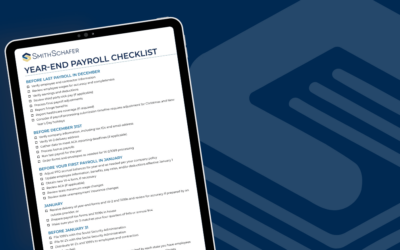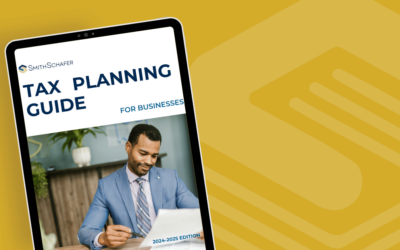Payroll Tax Deferral Questions Answered
On August 8, 2020, President Trump issued an executive order and three memoranda providing or extending COVID-19 relief to individuals and organizations. On August 28, 2020, the Department of Treasury and Internal Revenue Service issued guidance for implementing the memorandum’s payroll tax deferral portion. Notice 2020-65 makes relief available to employers for wages paid from September 1, 2020, through December 31, 2020. This brief notice covers the deferral basics, but more questions remain unanswered. Here is what this notice does tell us.
Q: Which employers qualify for the relief?
A: Any employer affected by the COVID-19 emergency previously declared under section 501(b) of the Robert T Stafford Disaster Relief and Emergency Assistance Act and required to withhold Social Security taxes (6.2 percent).
Q: Applicable wages?
A: Any taxable wage or compensation less than $4,000 per bi-weekly pay period. Eligibility is determined by the pay period for each employee. An employee making more than $4,000 in any given bi-weekly payroll is not eligible for that payroll, but is eligible for previous or subsequent payroll periods as long as the given period’s wage is not over $4,000.
Q: Due date of deferred taxes?
A: The deferred taxes will be due ratably over the period of January 1 to April 30, 2021. During this period, an employer will withhold the deferred tax amount and remit to the appropriate agency. Remittance of taxes will be penalty and interest-free until May 1, 2021. Any unpaid taxes at that point will be subject to penalty and interest.
Q: Who is responsible for paying the deferred taxes?
A: The employer remains responsible for collecting and remitting any deferred taxes. The guidance does not address how employers should treat the deferred taxes of employees who later quit.
Q: Is the payroll tax deferral optional?
A: We believe the deferral is optional as the guidance states it is made “available,” but is silent as to if the deferral is mandatory. Currently, there is no forgiveness of the taxes; this is only a deferral. If an employer withholds the tax from employee pay, these amounts must be remitted using the employer’s regular deposit schedule.
Q: What recordkeeping is required?
A: Reconciliation of the withholding and deferrals will be required and happen on Form 941 starting in third-quarter 2020. The Form has currently been issued as a draft.
If an employer defers the employee’s social security, it is recommended that a signed statement is retained in the employment file identifying the repayment obligation. Detailed records of withholding deferrals for each employee, including which payroll periods the employee is eligible, will be required. Specific tracking, by employee, of repayment, will also be required starting in 2021.
Q: What if an employee leaves employment or reduces hours in 2021?
A: The guidance provided does not discuss what happens if an employee terminates employment. It also does not provide insight into when an employee’s earnings decrease and are not enough to cover the tax deferral owed in 2021. Guidance is unclear if the employer will be liable for the deferral amounts.
What’s next?
Many questions remain unanswered after the issuance of Notice 2020-65, but we anticipate more guidance to be forthcoming. Stay tuned for future updates from us as they are available.



